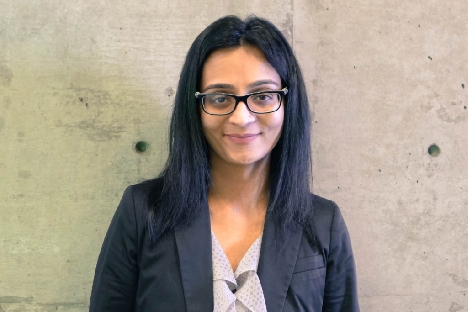Politics of Desecularization: Law and the Minority Question in Pakistan
Talk by Sociologist Sadia Saeed on her new book, Politics of Desecularization: Law and the Minority Question in Pakistan, an examination of how the contentious relationship between Islam, nationalism, and rights of religious minorities has been debated and institutionalized in colonial India and Pakistan.
The movement away from secularist practices and toward political Islam is a prominent trend across Muslim polities. Yet this shift remains under-theorized. Why do modern Muslim polities adopt policies that explicitly cater to religious sensibilities? How are these encoded in law and with what effects? SadiaSaeed addresses these questions through examining shifts in Pakistan’s official state policies toward the rights of religious minorities, in particular the controversial Ahmadiyya community. Looking closely at the ‘Ahmadi question’, Saeed develops a framework for conceptualizing and explaining modern desecularization processes that emphasizes the critical role of nation-state formation, political majoritarianism, and struggles between ‘secularist’ and ‘religious’ ideologues in evolving political and legal fields. The book demonstrates that desecularization entails instituting new understandings of religion through processes and justifications that are quintessentially modern.
Politics of Desecularization was awarded the 2016-17 Book Award prize by the American Institute of Pakistan Studies (AIPS). The award citation reads as following:
The committee chose the book because of its relevance to Pakistan Studies, as well as because of its theoretical sophistication and depth of argument. The author tackles such tough questions such as why government officials in Muslim majority countries adopt policies that are explicitly religious and how such policies are then encoded explicitly in laws. Using Pakistan as her case study, she charts the changes in Pakistani law related to the minority Ahmadiyya community, which then allows her to create a conceptual framework for understanding the competitive dynamics of secularism versus religionism. Her framework allows her to conclude that desecularization is essentially a modern phenomenon that can only be understood through the lens of nation-state formation and political majoritarianism.
Speaker Bio
Sadia Saeed is an Assistant Professor of Sociology at the University of San Francisco. She is a historical sociologist with substantive interests in sociology of religion, political sociology, human rights, and international law. Politics of Desecularization: Law and the Minority Question in Pakistan is her first book. Her current research focuses on the emergence and evolution of minority rights in international law. She is also developing a comparative and historical project that analyzes how anticolonial movements in twentieth century Asia and Africa shaped subsequent political, socioeconomic, and constitutional developments.
Saeed received her PhD in Sociology from the University of Michigan at Ann Arbor. Previously, she held postdoctoral fellowships at the Maurer School of Law and Indiana University, Bloomington and Yale University.
Read more about Prof. Saeed HERE.

